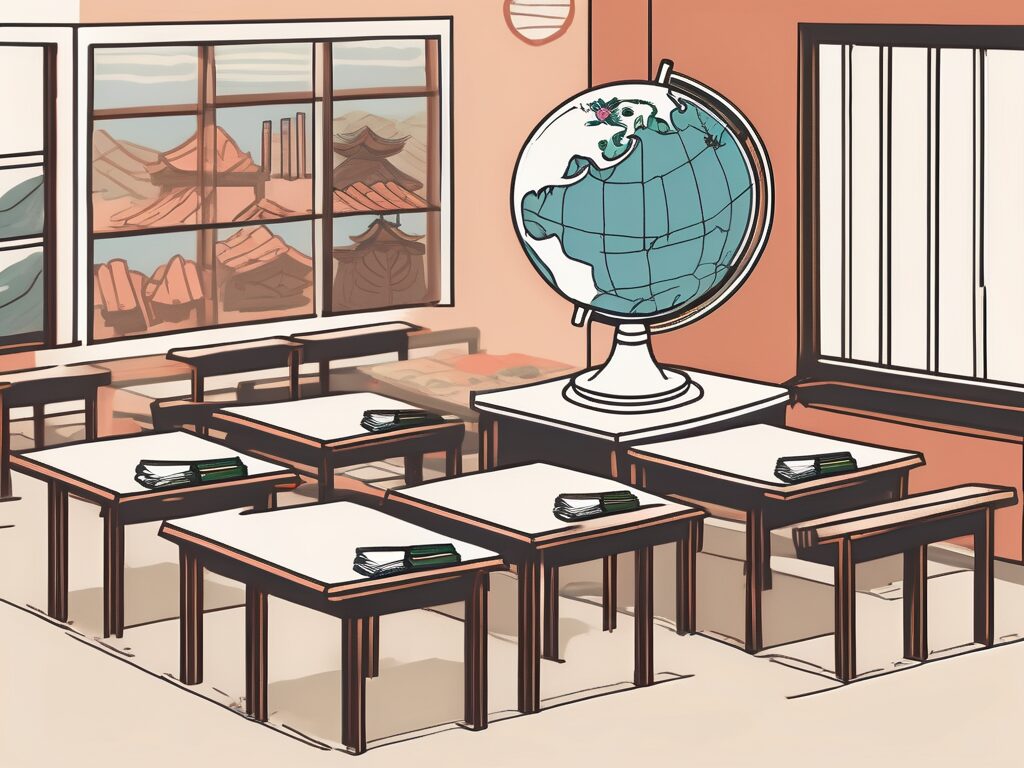Top 5 Higher Education Challenges in South Korea for 2025
South Korea is often recognized for its remarkable educational achievements, characterized by high literacy rates and a strong emphasis on academic performance. However, the higher education landscape in South Korea is currently facing significant challenges that require immediate attention. These challenges include intense academic pressure, exorbitant tuition fees, rising student debt, limited job opportunities for graduates, and a lack of emphasis on vocational education. This guide aims to provide education consultants with a comprehensive overview of these issues, facilitating informed decision-making for international teachers navigating this complex educational environment.
1. The Intense Academic Environment
Academic Pressure and Its Implications
The South Korean education system is characterized by a highly competitive atmosphere, where students are subjected to immense pressure to excel academically. The College Scholastic Ability Test (CSAT) serves as a pivotal determinant of students’ futures, contributing to a culture of stress and anxiety. This environment often leads to:
- Extended study hours that compromise mental and physical well-being.
- Increased rates of stress-related issues, including anxiety and depression.
- A concerning correlation between academic pressure and student suicides.
Stifled Creativity and Critical Thinking
The predominant focus on rote memorization within the South Korean education system has been criticized for inhibiting creativity and critical thinking skills. Students are frequently trained to reproduce information rather than engage in analytical or innovative thought processes. This limitation poses risks not only to individual student development but also to South Korea’s competitiveness in a global knowledge-based economy.
2. Financial Barriers: Tuition Fees and Student Debt
The Financial Burden of Higher Education
South Korea’s tuition fees rank among the highest globally, placing a substantial financial strain on students and their families. The implications of these costs include:
- Graduates often emerge with significant debt, impacting their financial stability.
- Increased social inequality, as high costs limit access to education for low-income families.
- A stark contrast to countries such as Germany and Finland, where higher education is provided at no cost to students.
The Escalating Student Debt Crisis
The rising tuition fees have culminated in a burgeoning student debt crisis. Many students resort to loans to finance their education, leading to long-term financial burdens that can hinder economic mobility and growth. The ramifications of this crisis extend beyond individual students, potentially stifling broader economic development due to reduced consumer spending and investment capabilities.
3. Limited Employment Opportunities for Graduates
Graduate Unemployment Trends
Despite high educational attainment, many South Korean graduates encounter significant challenges in securing employment. The competitive job market often reveals a disconnect between the skills acquired through education and the competencies sought by employers. This issue is exacerbated by:
- A saturated job market that fails to absorb the increasing number of graduates.
- The necessity for graduates to possess practical skills that align with industry demands.
Promoting Vocational Education as a Solution
To address the graduate unemployment crisis, there is a pressing need to advocate for vocational education. This educational pathway equips students with practical skills that are directly applicable in the job market. However, the stigma associated with vocational training in South Korea presents a significant barrier to its acceptance. Education consultants should consider strategies to:
- Encourage a cultural shift that values vocational education alongside traditional academic routes.
- Highlight successful vocational programs that demonstrate positive employment outcomes.
4. The Need for Systemic Reform
The multifaceted challenges facing South Korea’s higher education system necessitate a comprehensive reform strategy. Addressing the academic pressure, financial barriers, and employment challenges requires collaboration among educational institutions, government bodies, and industry stakeholders. Key areas for reform include:
- Implementing policies that reduce tuition fees and provide financial support for low-income students.
- Enhancing career services and job placement programs to better align educational outcomes with market needs.
- Fostering an educational culture that values creativity, critical thinking, and practical skills.
5. Conclusion: A Call for Action
The challenges confronting South Korea’s higher education system are complex and require a concerted effort to address. By focusing on systemic reform, education consultants can play a pivotal role in guiding international teachers and institutions toward solutions that promote equity, sustainability, and relevance in the 21st century educational landscape.
Enhance Your Educational Career with IPGCE
As South Korea navigates the complexities of its higher education system, international educators have the opportunity to elevate their qualifications through the International Postgraduate Certificate in Education (IPGCE). This program offers access to a global professional network, equips educators with the skills to adapt to diverse curricula, and provides the flexibility of online study. To explore how the IPGCE can enhance your career prospects and open doors to international teaching opportunities, join the IPGCE program today and take the first step toward transforming your educational career.

